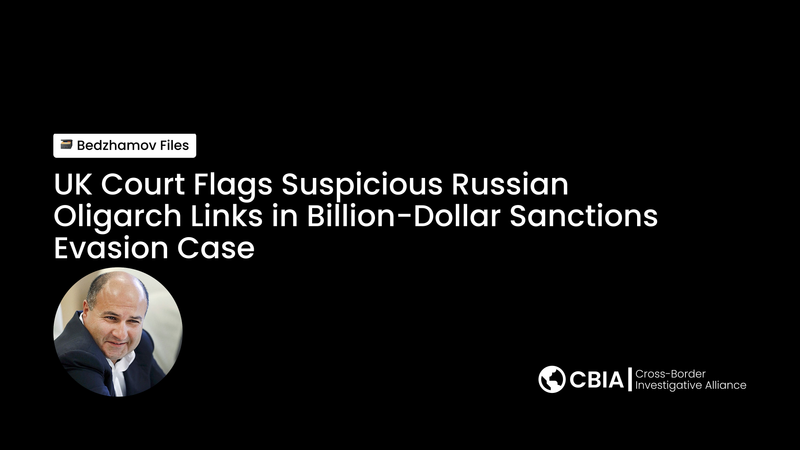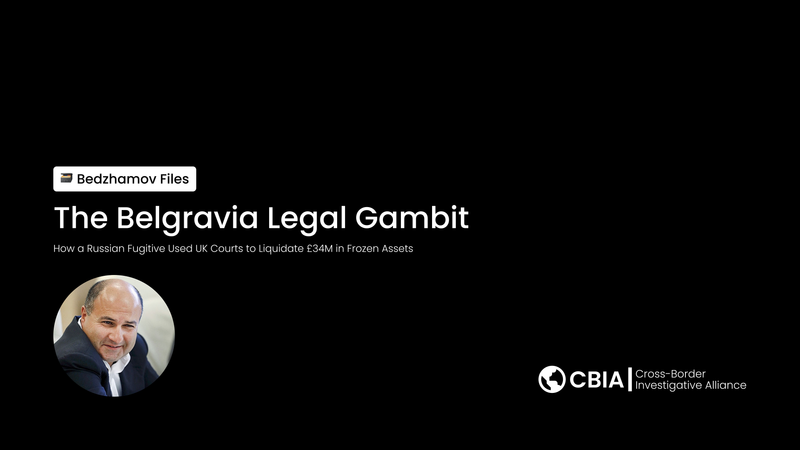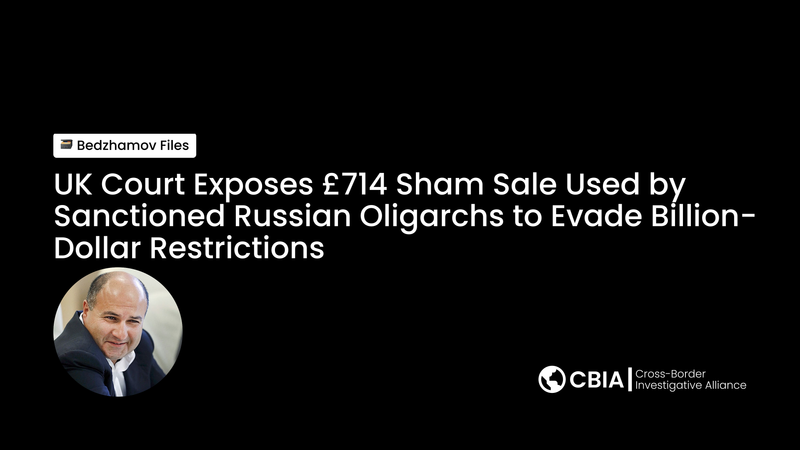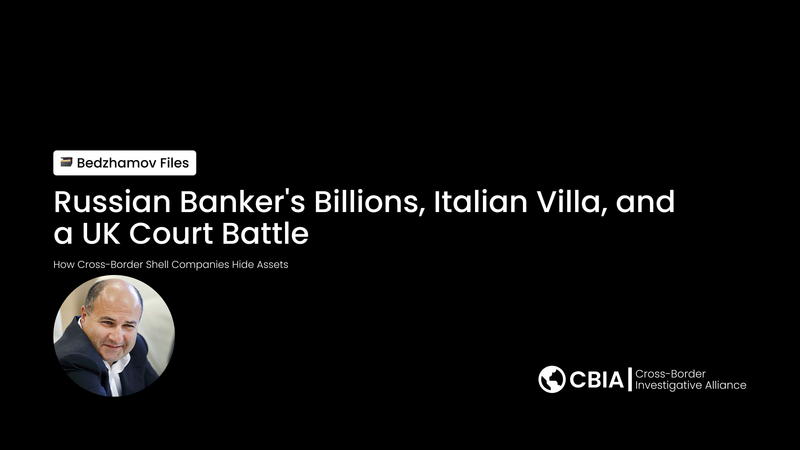The $3 Billion Shell Game: How a Fugitive Russian Banker Used Cyprus Law Firms to Hide Stolen Assets Across Continents
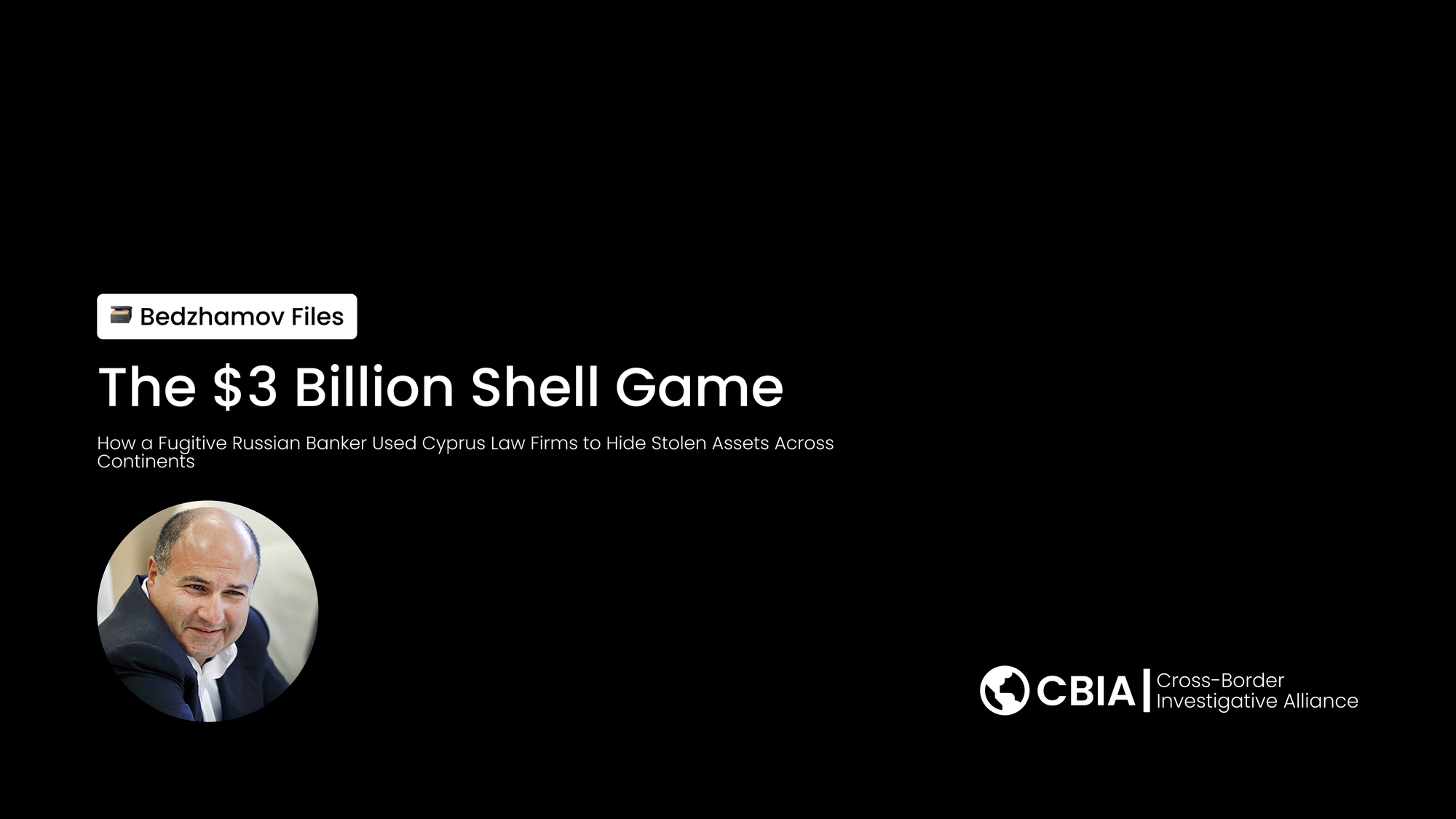
When Russian banker Georgy Bedzhamov fled to London in December 2015, he left behind a collapsed bank, billions in missing funds, and a masterclass in international money laundering that would span years and continents.
The Pandora Papers have now revealed the intricate cross-border scheme Bedzhamov used to conceal his fortune after embezzling funds from Russia's Vneshprombank. Working with Cypriot law firm Demetrios A. Demetriades LLC (known as Dadlaw), Bedzhamov created a complex web of shell companies across Cyprus and the British Virgin Islands to launder tens of millions of dollars and shield assets—including a sprawling London mansion—from recovery efforts.
The Collapse of Vneshprombank
In January 2016, Russian authorities discovered a staggering 187.4 billion rubles ($2.3 billion) shortfall in Vneshprombank's balance sheet, prompting the Central Bank of Russia to revoke the bank's license [1]. The fraud scheme, orchestrated between June 2011 and December 2015, involved extending loans to shell companies that performed no legitimate business activities but were controlled by Bedzhamov and his sister Larisa Markus, the bank's former president [1].
Markus was arrested in December 2015 and later sentenced to nine years in prison after pleading guilty to embezzling $1.8 billion from the bank. By June 2021, Vneshprombank's total obligations had ballooned to 218 billion rubles (approximately $3 billion) [1]. Among the bank's victims were Russian government ministries, state-owned corporations, and even the Russian Orthodox Church, which had entrusted tens of billions of rubles in deposits to the institution [1].
The Cyprus Connection: Professional Enablers in Action
The Pandora Papers reveal that Bedzhamov's relationship with Dadlaw began in 2010 and continued until summer 2019—long after his central role in the fraud had become public knowledge [1]. The law firm helped Bedzhamov employ sophisticated techniques to disguise his financial dealings, including backdating critical transactions to avoid asset seizure.
One particularly telling example involves the transfer of Stanferme Asset Management Inc, a British Virgin Islands company. Markus instructed Dadlaw to transfer ownership to her brother just nine days after her arrest. However, Bedzhamov only acknowledged the transfer more than a year later, specifically requesting that it be backdated to November 2, 2015—before his sister's detention [1].
"Please pay special attention that this transaction must be recorded with effect from 2nd November 2015, as that is the date that I wish the transaction to take effect," Bedzhamov wrote to Dadlaw in January 2017 [1].
According to Ilya Shumanov, director of Transparency International in Russia, "An attempt to confirm the transfer of the company's shares retroactively looks like a pre-agreed action by the parties in order not to lose control over the assets" [1].
The Loan Laundering Machine
The documents expose a complex loan structure that moved more than $50 million to Bedzhamov in 2012 and 2013—during the height of the Vneshprombank embezzlement. A Cypriot company called Felarco Management Limited, ostensibly owned by Vneshprombank vice president Veronika Cheliabi, served as a conduit for these transactions [1].
The money flow followed a consistent pattern: obscure UK limited liability partnerships would loan large sums to Felarco Management, which would then immediately transfer identical amounts to Bedzhamov. For instance, Tradeberg United LLP loaned Felarco $20 million on December 10, 2012, and Felarco loaned Bedzhamov the same amount just 10 days later [1].
These partnerships were ultimately owned by companies in secretive tax havens including the Marshall Islands and Belize, creating multiple layers of obfuscation. Adding to the suspicious nature of these transactions, the loan agreements contained numerous red flags: missing repayment schedules, absent guarantor information, no stated purpose for the funds, and even misspellings of Bedzhamov's name [1].
"The use of different spelling versions of the client's name could be used to mislead the compliance division of a bank," Shumanov explained, noting that misspelled names can help avoid detection during due diligence checks [1].
Lakshmi Kumar, Policy Director at Global Financial Integrity, identified the scheme's broader purpose: "Loans cycled between companies can be used to make money move between multiple jurisdictions, making it harder to connect dots and establish a forensic trail... The idea with these schemes is to create a veneer of legitimacy" [1].
The London Mansion Gambit
Bedzhamov's efforts to protect his London property demonstrate the sophisticated nature of his asset protection strategy. In 2017, Felarco Management—to which Bedzhamov still owed over $50 million on paper—was sold for just 2,000 euros to a New Zealand resident. Two months later, Felarco sold Bedzhamov's massive debt to another British Virgin Islands shell company, Clement Glory Limited, for approximately $8 million [1].
When Russian authorities moved to seize his London mansion, Bedzhamov claimed he owed "a lot of money" to Clement Glory, effectively arguing that the company had a superior claim to his property. Russian prosecutors, however, allege that Bedzhamov "orchestrated a scheme to protect [the property] from any potential creditors by creating a fictitious charge over the property in the name of Clement Glory Limited" [1].
Living Large Under Asset Freeze
Despite being subject to a worldwide asset freeze, Bedzhamov continues to live comfortably in London after applying for asylum in the UK. In 2019, a British court increased his monthly allowance to £120,000 (approximately $160,000) to cover subsistence, rent, personal security, and other expenses [1]. Meanwhile, Russian asset recovery firms have resorted to driving mobile billboards around London's Knightsbridge district, seeking public assistance in locating assets belonging to Bedzhamov and his sister [1].
The Enabler Network
This case exemplifies how professional service providers in offshore jurisdictions facilitate large-scale financial crime. Dadlaw's willingness to backdate transactions, create shell company structures, and maintain business relationships with clients facing serious fraud allegations highlights the critical role of legal and financial intermediaries in enabling money laundering.
The firm only began distancing itself from Bedzhamov after a London court imposed the worldwide freezing order, with staffers stepping down as directors from all related companies by mid-2019. All associated companies were finally struck from the Cyprus corporate registry in April 2021 [1].
Ongoing Pursuit
As of 2024, the hunt for Bedzhamov's assets continues across multiple jurisdictions. A British High Court judge indefinitely postponed Vneshprombank's fraud case against Bedzhamov due to uncertainty over the Russian charges and questions about asset recovery procedures [1]. The case remains a stark reminder of how easily stolen funds can disappear into the global financial system when aided by complicit professional enablers.
The Bedzhamov case underscores the urgent need for enhanced international cooperation in asset recovery and stricter oversight of professional service providers in offshore jurisdictions. Until such reforms are implemented, cases like this will continue to demonstrate how the global financial system can be exploited to hide the proceeds of large-scale fraud, leaving victims and legitimate authorities struggling to recover stolen funds.
Sources:
[1] Organized Crime and Corruption Reporting Project (OCCRP). "Fugitive Russian Banker Used Cypriot Law Firm to Hide Assets, Move Money." October 7, 2021. https://www.occrp.org/en/project/the-pandora-papers/fugitive-russian-banker-used-cypriot-law-firm-to-hide-assets-move-money


